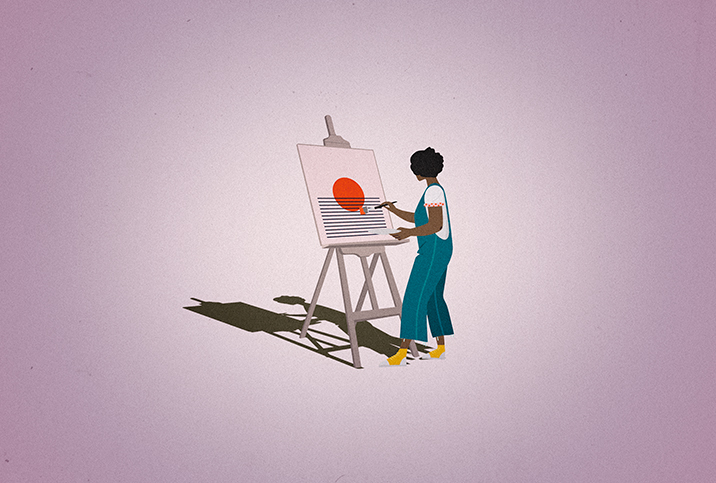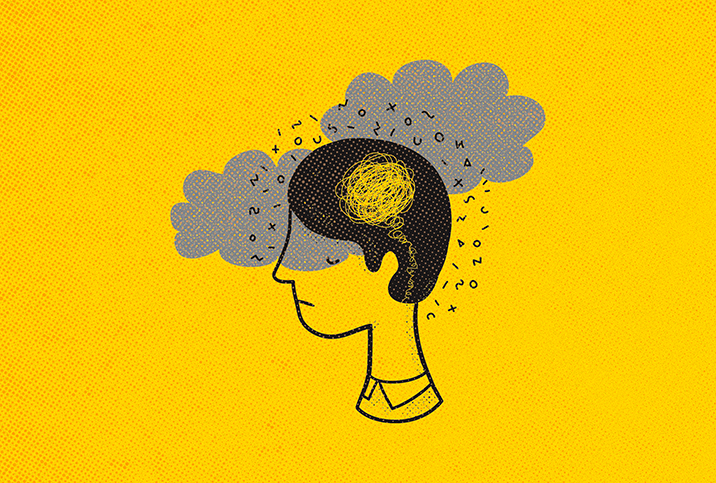How to Overcome Avoidant Behaviors

Most people have engaged in avoidant behaviors at some point in their lives, such as when they attempt to escape or distance themselves from unwanted thoughts, feelings or situations. Perhaps, something scares you, so you try your best to steer clear of that situation and the immediate ease of anxiety feels like a sudden victory.
However, the feeling of winning may create a vicious cycle of more avoidance, making it easy for avoidance to become a part of who they are.
Let's take a look at how to overcome avoidant behaviors.
What is avoidance behavior?
"Avoidance or avoidant behaviors are coping strategies used to escape the unpleasant feelings or emotions caused by an issue or a situation," said Lawrence Weinstein, M.D., chief medical officer at American Addiction Centers in Tampa, Florida.
Many people engage in avoidant behaviors because dealing with uncomfortable feelings is, well, uncomfortable.
Avoidance is a coping mechanism often helpful to people during childhood. If someone experienced emotional neglect as a child, for instance, they may have learned how to avoid their emotions as a simple coping strategy. This is also one of the earliest ways we all deal with conflict. An example we all probably remember as children growing up is lying because we didn't want to own up to an uncomfortable situation.
While both lying and avoidance are part of development, when we fail to grow out of these immature behaviors, it can become problematic. People usually want to avoid things that cause anxiety, but that can lead to procrastination.
Weinstein explained that there are some common characteristics in people who develop avoidant behaviors, including:
- Anxiety
- Fear of embarrassment
- Depression
- Lack of affection in childhood
- Poor self-image
- Self-consciousness
- Sensitivity to criticism
- Shyness
Negative consequences
Avoidance becomes a problem when the behavior is a person's primary method to cope with stress, as it can interfere with how people act and the way they live their lives.
"Avoidant coping has frequently been associated with negative outcomes and can actually lead to a vicious cycle that makes the initial stressor or circumstance much more difficult to approach," Weinstein explained.
For example, people may avoid actions that trigger painful memories from the past or simply stop working on goals if they cause anxiety. These roadblocks can prevent them from working toward their goals.
The more you avoid certain situations in your life, the more avoidance becomes a problem. Avoidance coping can make negative emotions such as stress and anxiety worse and ruin self-esteem.
"Consistently employing avoidant coping strategies exacerbates anxiety, stress, depression, and can have other far-reaching effects, such as damage to relationships," Weinstein added.
Avoidance and addiction
When avoiding uncomfortable emotions and situations, people tend to gravitate toward pleasurable activities that make them feel relief in the moment. For instance, they might use alcohol and drugs, or indulge in gambling, eating or sex to avoid an emotion or situation.
"Alcohol use is a very common avoidance strategy. The notion of drinking to forget one's problems is a well-understood trope, which illustrates its familiarity," Weinstein explained. "Alcohol consumption in this manner escalates to the level of alcohol use disorder much faster than people may think, so it's very easy for an addiction to develop when alcohol is misused as a coping mechanism."
In a 2020 survey, more than 59 million people in the U.S. ages 12 or older reported using illicit drugs in the previous year. About 25.4 percent of all users of illicit drugs suffer from a drug disorder.
When avoiding a situation by using substances or engaging in other activities, people may be in denial about what exactly they are doing, and this denial of reality and avoidance can potentially lead people to develop dependencies.
"Denial is another avoidance tactic that is often exhibited, and denial is also a symptom of addiction," Weinstein said.
Overcoming avoidance
Bruce Bassi, M.D., an addiction psychiatrist at TelepsychHealth, based in Chicago, helps people overcome avoidance. He recommends people face the situations and emotions they are avoiding to break the cycle of avoidance. When you avoid something, the temporary relief you get might give you pleasure but it might also prevent you from fulfilling everything you want to accomplish with your life.
"You want to start avoiding more and more situations, and then you find yourself actually living a very drastically different life than the one you wanted to live," Bassi explained. "When you notice your body or mind pulling away from something, recognize that and try to go toward it instead. As your life becomes more restricted due to anxiety, you will find it's devoid of all the things that were once meaningful to you. Therefore, the catchphrase 'avoid avoidance' is an easy way to help someone recognize the tendency to do this."
Bassi offered the following suggestions for people who want to overcome avoidance:
- Set deadlines to accomplish your goals, make them achievable and make them visible to you on a daily basis.
- Set value-based goals by first understanding what your values are and follow this action by setting goals regardless of the level of anxiety you have surrounding those activities.
- Use your social network to your advantage by letting others know about your goals and enabling them to help hold you accountable for meeting those goals.
To best implement these suggestions, consider working with a professional to help guide you in dealing with the stressful and uncomfortable situations you're avoiding.
"Seeking support when confronted with stressful circumstances can aid in working through those situations and lead to a positive result," Weinstein noted.


















